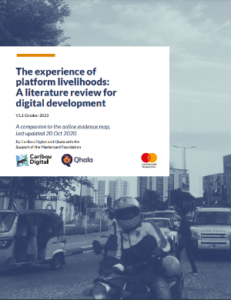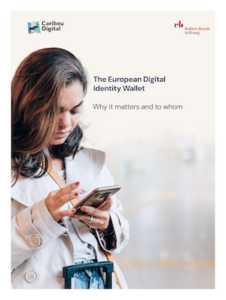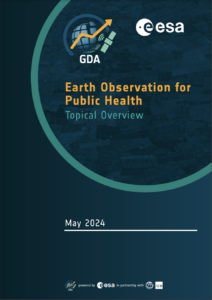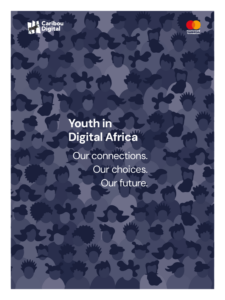There is growing interest in the economic development community about how people can participate in the platform economy to find work and earn a living. Opportunities in roles like online freelancing and ride hailing are beginning to be found throughout low- and middle-income countries, as is social commerce—the selling of goods and services via social media platforms like Facebook and WhatsApp. Perhaps platform work and platform sales offer new paths to employment, agency, and earning, even in contexts where unemployment is rampant and traditional jobs in the formal sector are scarce. Perhaps platform work and platform sales represent a dangerous erosion of hard-fought social contracts between workers and employers, a way of working that traps small enterprises and individuals at the margins without dignity or prospects for advancement. Perhaps platform work and platform sales are both of these things, and more. We argue that to inform policies, product, and program, there is still insufficient attention paid to how individual work seekers and entrepreneurs pursue livelihoods in the platform economy. To address this gap, this paper draws on a literature review to make five main foundational contributions.
1 We propose and define platform livelihoods as the superset of platform work by individuals and platform sales by micro and small enterprises (MSEs) and farmers. This resulted in an illustrative set of nine diverse platform livelihood types.
2 Using a review methodology of 75 studies, we identified twelve core experience elements of platform livelihoods, discussing each in turn.
3 We discuss studies of each of the nine platform livelihood types, drawing distinctions between them.
4 We combine these two arrays into 9×12 online evidence map1 of findings per livelihood type and per element.
5 We discuss how these livelihood elements and types interact with four crosscutting themes (gender, rurality, youth, and COVID-19), and four emergent dynamics (hidden hierarchies, amplification, contestation/appropriation, and fractional livelihoods).
We have crafted this review, and the forthcoming Kenya fieldwork that it supports and informs, with the support of the Mastercard Foundation, that is specifically interested in extending work that is dignified and fulfilling to 30 million young Africans, particularly young women, as part of its Young Africa Works initiative.





